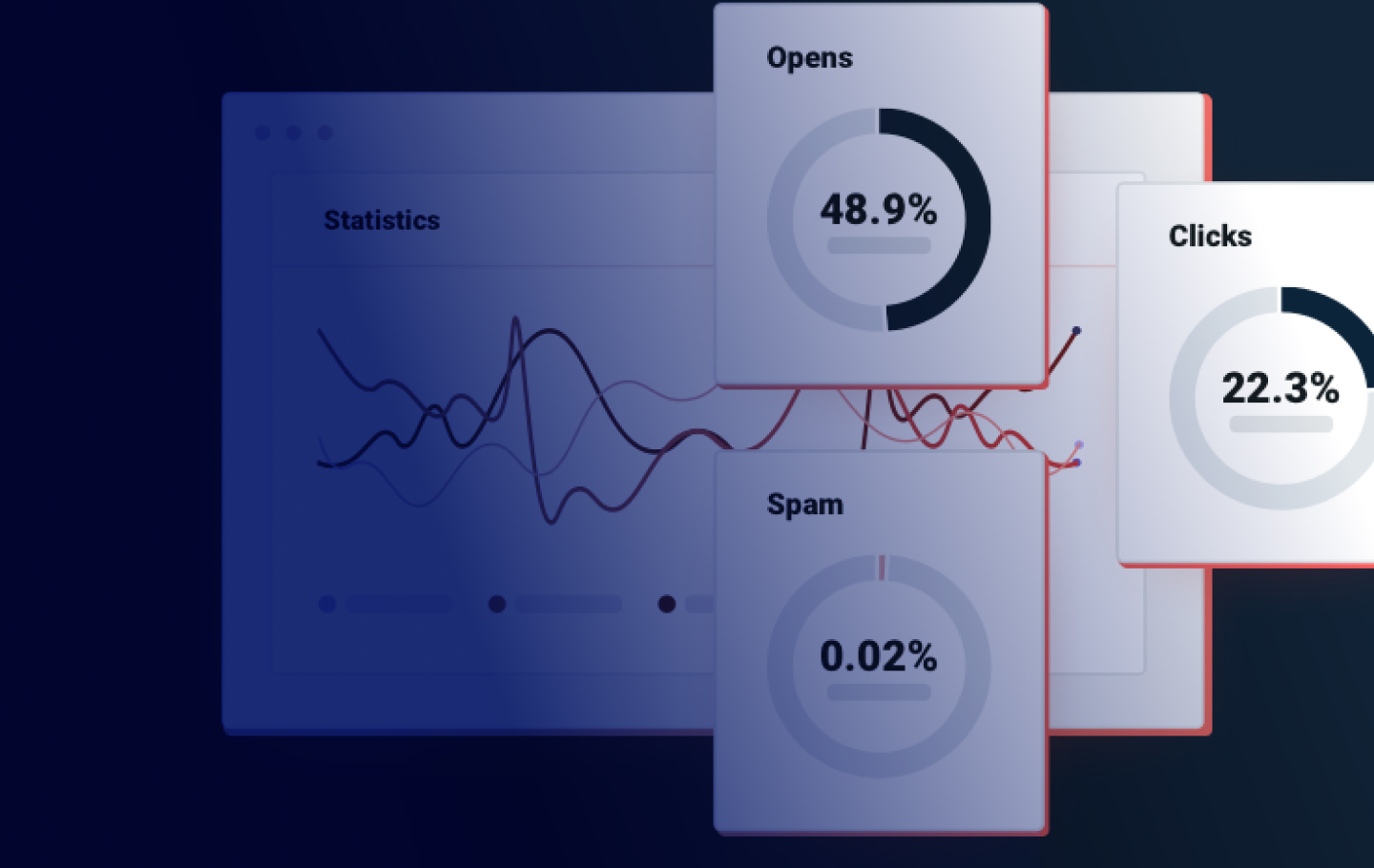Domain reputation is how trustworthy and credible your website is, according to search engines like Google. It’s decided by many factors, some within your control and others. Not so much.
At its core, domain reputation is an essential factor in search engine optimization (SEO). It plays a massive role in your website’s ranking.
Why?
Checking and enhancing your domain reputation improves your ranking in search engine results pages (SERPs). This leads to more traffic and, ultimately, more conversions. Read on to learn all about the specifics of domain reputation, its deciding factors, and how to ensure email deliverability.
What is Domain Reputation?
Domain reputation tells the world how trustworthy your website is. It’s based on various factors we’ve outlined below. Therefore, a website with good standing is more likely to be safe and trustworthy, while a website with poor one may be untrustworthy or even dangerous.
Several factors can influence a website’s reputation, including:
- The age of the domain: Older domains tend to have more authority and trustworthiness than newer ones.
- The number and quality of inbound links: Links from high-quality websites signal that the linked-to website is also high quality to search engines.
- The anchor text of inbound links: The anchor text is the text appearing between the <a> tags on a webpage. If the anchor text contains keywords related to the linked-to website, it signals to search engines that the linked-to website is relevant for those keywords.
- The quality of the website’s content: High-quality, informative, and well-written content helps to build a website’s reputation.
- The historical data associated with the domain: If a domain has been used for spamming or other malicious activities in the past, it’s more challenging to build up a positive reputation.
Check out our domain health checker.
Domain Reputation vs. IP Reputation
Both domain reputation and IP reputation are essential for online security. Domain reputation helps users determine whether or not a website is safe to visit.
IP reputation helps users determine whether or not the traffic coming from a website is secure.
As discussed, domain reputation measures a website’s trustworthiness and credibility. It indicates website quality for users. But it also helps Email Service Providers (ESPs) decide whether it’s safe to deliver emails from that domain or send it to recipients’ spam.
On the other hand, IP reputation shows how trustworthy an IP address is. Many factors contribute to this, including the IP address location, the associated activities, and whether or not the IP address has been blacklisted. Essentially, IP reputation indicates how safe and trustworthy the traffic from a website is.
IP reputation is a relatively new concept, but it’s quickly gaining traction. IP reputation databases are maintained by organizations such as Spamhaus and SURBL. They track the IP addresses of known spammers and malicious actors. When an email server receives an email from an IP address on one of these lists, it can flag it as spam.
Why Should You Be Concerned About it?
Why should you be concerned about domain and IP reputation?
ESPs use domain reputation to decide whether to deliver an email from a particular sender. If a sender has a bad domain reputation, their emails will likely be blocked or sent to spam. Both domain and IP reputation are crucial for email deliverability. A solid domain and a trustworthy IP reputation improve email deliverability immensely
Be aware of your domain and IP reputation, check your sending reputation, and take steps to improve email deliverability if necessary.
Using a reputable email service provider, maintaining a clean mailing list, and avoiding spam trigger words in your email content all help to improve your domain and IP reputation.
Factors that Build Your Domain Reputation
Domain reputation is essential for any business wanting to rank highly on search engine results pages (SERPs). A robust and enhanced domain reputation gives you an edge over the competition, helps attract more organic traffic, and leads to more lead-to-customer conversions.
Many factors contribute to a domain’s reputation, including:
Blocklisting
Blocklists are lists of websites that have been flagged as untrustworthy or engaging in shady practices. If you’re on a blocklist, it can cause your domain reputation to take a hit.
Spam Traps
Another critical factor is how many spam traps your website has triggered. Spam traps are email or web addresses that anti-spam organizations set up to catch spammers. If these addresses get bulk emails from your domain, it can negatively affect your domain reputation.
Consistency
When you send transactional or marketing emails from a company domain, it’s crucial to stay consistent in your efforts. Let’s say you send 200 emails every week and then suddenly switch to 10,000. ESPs could mark this activity as abnormal. Let’s further dissect the consistency principle:
- Time: This aspect is about your domain age, sending frequency, and schedule consistency.
- Volume: Drastic differences in the number of emails sent in a given period can drop domain reputation and result in poor deliverability rates. Warming up your outbound email account is crucial for improving this metric.
- Content quality: The quality of your content is also a significant factor. Your domain reputation decreases if you send emails containing sketchy and low-quality offers, poor grammar, and spam words.
Poor Engagement
Remember the craze around the iOS 15 update in 2021? Email marketers feared that open rates were a thing of the past, and mostly moved away from it. But honestly, when has open rate been an engagement metric that made full sense?
If you have enough unique opens, adequate conversions, and a low bounce rate, it’s a fantastic indicator of good engagement. Creating relevant and quality email content has the power to transform your domain reputation, too.
Domain Age
In most cases, older domains tend to have better standing (if they don’t have historical baggage in spam and blocklists). Newer domains don’t have the luxury of time to have proven themselves as trustworthy. If you’re just starting, don’t worry— there are ways to offset the lack of age with other factors (like high-quality content).
Conclusion
Domain reputation is a complex topic, and several factors influence it. To maintain a positive domain reputation and ensure good email deliverability, keep the factors we discussed in mind and work proactively to avoid any negative ones.
With a solid understanding of domain reputation and its many aspects, you’ll be well on your way to improving your website’s domain reputation and ensuring that search engines see it as trustworthy and credible.


